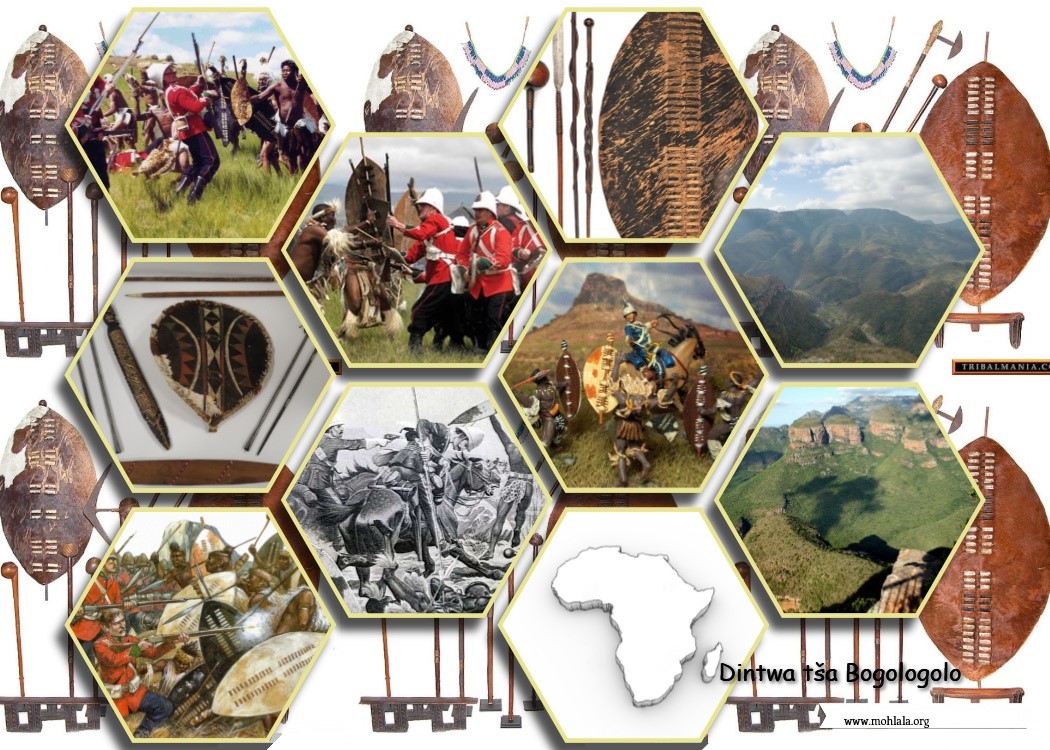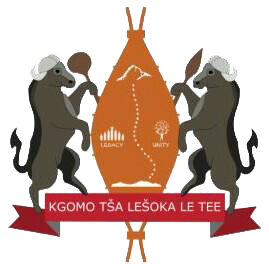“History”
The history of a community reflects the pride of such community. People pride themselves on a full knowledge of their origin and how such history has carved their social structure and being.
The history of Ba Mohlala should be understood against the back drop of the history of Banareng of Sekororo/Mahlo, Mmutlana in Malokela (Putney), and Letswalo. Also, our history is premised on that of Bakone under their first known leader/chief-Nape.
The latter traveled southwards from as far as Tanzania and settled in the Bokgalaka areas of Zambia (Northern Rhodesia) and Zimbabwe (Southern Rhodesia) around 1500. By the mid 1500s, they had advanced and settled in Tswetla (Soutpansberg).
At the time, the collective Banareng, under Tloropyane/Sebushi, had trekked from Serowe (Botswana) where they had settles as they descended from Ntswana Tsatsi (North East of Africa), and settled at Kgwadubeng, across the Odi/Crocodile River (in the then Transvaal). kgwadubeng is not far from Senwabarwana (then Bochum). I estimate this to have been around the early 1500s or even the late 1400s.
When Tloropyane/Sebushi passed on in Kgwadubeng, his son, Mokgopedi, assumed the leadership of Banareng. They left Kgwadubeng and inched in the direction of Botlokwa where they encountered Bakone. A battle might have ensued in which Banareng were crushed and taken over by their enemies. Banareng had to submit to Bakone and thus were required to adopt the Tlhantlhagane moano (totem).
The duo headed for Polokwane and established a homestead at Bakone Malapa before proceeding and pitching a homestead in Sepitsi. Matlala-a-Thaba’s sons (Rraila, Mohlale, Dikgale et al) quietly revolted against their aged father and took their followers and established their new home at Mogodumo (now Ga Chwene in Chwene’s Poort).
Mokgopedi then seized this opportunity to break free from Bakone’s grasp and reclaim the Banareng’s independence. He fled to Mogodumo with the old man’s sons. Whilst at Mogodumo and seeing that he was aged but fearing Matlala-a-Thaba’s incident, Mokgopedi made a sensible decision-i.e. blessed his children (and in order of their seniority: Maalobane, Moshohli, Serurubele, and Mohlala) and aportioned them their dues and each of them established their kingdoms from whence they grew mightier and steonger. Maalobane gave birth to Ba Sekororo/Mahlo. Moshohli establisged the Malokela (Putney) community. Serurubele gave issue to the Letswalo population. Mohlala (nick named Morudi for his black smith prowess) took a section of the collective Banareng and established Ba Mohlala as we know them today regardless of where they reside.
The now independent Banareng took different directions but only to meet again in Phalaborwa. Some of Bakone also settled in Phalaborwa slightly earlier than their brotheren. However, they left in a southeasterly direction and some of Bakone including all the Banareng settled at Bolaodi (now Sabie). Other Bakone proceeded to and settled in parts of Swaziland. Unfortunately, some of Bakone who stayed behind in Swaziland think are Swazi in origin. Settlement in Swaziland seems, according to me, to have been before 1600.
Ba Mohlala then retraced their steps and finally permanently settled at what Mohlala (Morudi) named Sellale (Sellale sa Mohlala-Morudi) which stretched from the Bourke’s Luck Pot Holes and Motshetsheng/Morothong to Motitji River just below Graskop. Mohlala passed on at Sellale an was burried somewhere there. Mohlale, his son took over the reigns. He left some of the community members behind (meetse-magakwa or bathiba difero-puddles or door proppers) at Sellale whilst on an expansionist drive and established Ba Mohlala’s second base in Mokororwane (now Steelpoort). This was way bedore 1650. they found Ba Mashabela long settled in the area and being the undisputed and lorded chiefs. Both Ba Mashabela and Mohlala were joined in circa 1650 by Bakgatla ba Maroteng (now popularly known as Ba Matsebe (nick named Sekhukhune) who also revered and lorded Mashabela as their chief.
Somewhere between 1820 and 1825 Lesiba passed on in and was buried in Diphale (now Driekop), and his issue, Hlong Diamond took over the chieftaincy baton. The latter felt the need to go visit his first homestead of Matibidi-Sellale.
Whilst here, Ba Mohlala had some run-ons (1864) with Mapono (the naked ones and this was due to their scanty clothing) who were on an expansionist mood. Ba Mohlala evaded their enemies so smartly because the latter knew the Three Rondawels and Mohlatse (Blyde) River like the palms of their hands. They ascended to the top of what is now called Mariepskop by using Megologolo roots. They then requested the assistance of Chief Maripe of Mapulana for assistance in what would be an annihilation of Mapono (Swazi warriors). A calf was hoisted by the strong vines (Megologolo. This is where the name Mogologolo or Moholoholo derives from. It has nothing to do with Old Old Times as Mapulana indicate) to woo the Mapono to the gorge that sealed their fate and contempt of the local Bapedi.
After the 1864 Mogologolo Battle, Hlong went back to his second homestead in Diphale to appraise Sekhukhune regarding their battle with the Swazis. He had also gone to Diphale to visit his other community. Whilst in Diphale (August 01, 1876), he and other chiefs helped Sekhukhune and Johannes Dinkwanyane to crush Poroporo (President Thomas Burger) to submission and utter embarrassment. Paul Kruger then took over from the humbled Poroporo.
Due to the a developed rift between Hlong and Sekhukhune, the former instructed his messenger (Makodikodi), at the beginning of 1877, to go inform Sekhukhune, but only after three weeks, that he had left for his first homestead in Matibidi-Sellale. He feared that Sekhukhune could kill them if his trekking intentions were communicated earlier. Sekhukhune then, unilaterally told Makodikodi (the messenger and commoner) to become an interim leader of Ba Mohlala until Hlong came back.
Hlong died and was buried in Matibidi. He had left a leadership void in Diphale. Ba Mohlala split and established themselves elsewhere.
The research continues and will be shaped by the nature of inputs I receive. I thus appeal to all who have some information (written or verbal) to link up with me so that I can bring this that I started in 2007 to closure. I request all the Banareng/Dikgomo either in South Africa, Botswana, Swaziland and Lesotho to share their information and wisdom regardless of how minuscule and unimportant you view of data. Though I focus on Ba Mohlala, Banareng information in general is of vital importance to the story I am relating to interested parties. Praise songs are well come.

Author: DR. MPHO MOHLALA
0833255330 or 0799847777 or mpho.pro@gmail.com or mpho.pro@ovi.com
